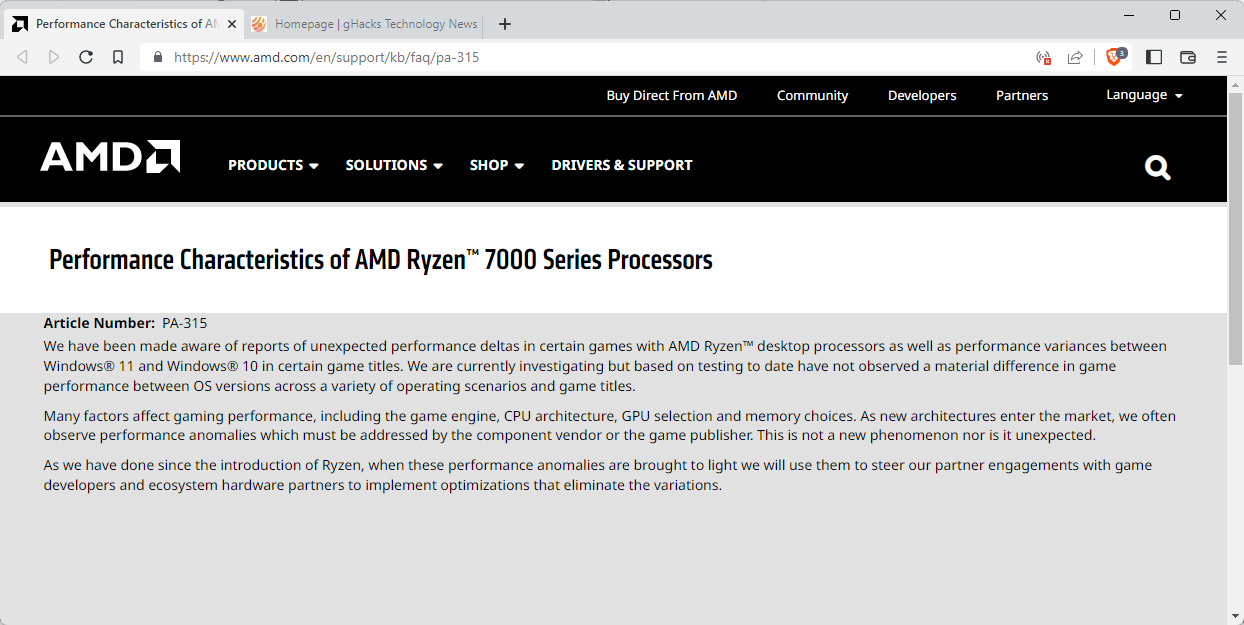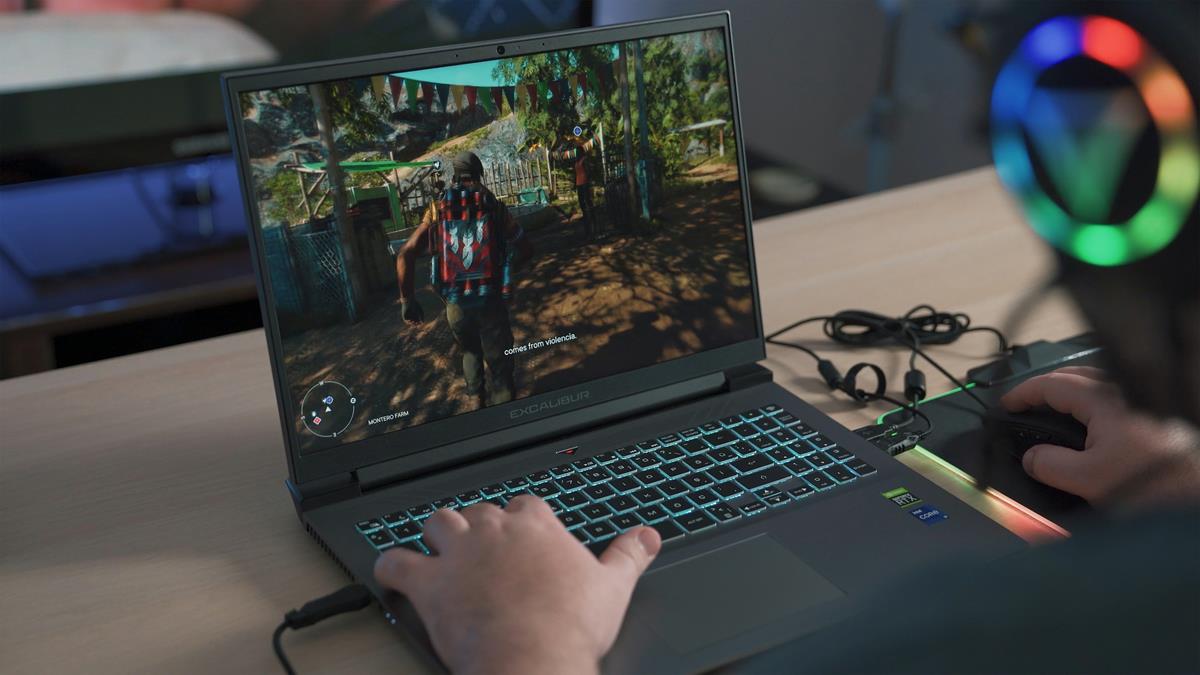AMD is investigating Ryzen 7000 performance issues

AMD released a performance advisory for its Ryzen 7000 series of processors. The company addresses claims in the advisory that the Ryzen 7000 family of processors have performance-related issues.

Reports about performance regressions came from independent testers and from hardware sites such as Tom's Hardware. The testers discovered that slower Ryzen processors would beat faster Ryzen processors in some of these benchmarks.
Tom's Hardware discovered that "single-CCD (chiplet) Ryzen models outperformed dual-CCD models that have more cores" in three of eight game titles included in the benchmark tests. In CD Project Red's Cyberpunk 2077 game, a Ryzen 5 7600X processor managed to beat Ryzen 7 7700X, Ryzen 7 5800X3D, Ryzen 9, 7900X and Ryzen 9 7950 X processors. The three game titles in question are Cyberpunk 2077, Warhammer 3 and F1 2022. At least two additional games, The Riftbreaker and Metro Exodus, have similar issues reportedly.
AMD confirms that it is investigating the issues. The company claims that it has not observed "a material difference in game performance between OS versions across a variety of operating scenarios and game titles".
New architectures, such as the company's Ryzen 7000, often require that component vendors and game publishers address performance anomalies that are observed shortly after launch. In other words, AMD claims that it is expected behavior and that it will be sorted out over time.
The company wants to work with game developers and ecosystem hardware partners to "implement optimizations that eliminate the variations".
Many sites reported that Microsoft's Windows 11 operating system was the cause of the performance differences in certain games, but this appears to be untrue according to AMD. These differences in performance may occur on Windows 10 or Windows 11, at the least, according to AMD.
Gamers should expect less than optimal performance on some games that they play on Windows devices, and maybe also on devices running other operating systems. Whether AMD, its partners and game developers manage to sort these issues out remains to be seen. It is usually the case that new drivers will address certain issues in games and may also improve the performance overall or for certain games.
Now You: do you play games on Windows or other operating systems? (via WinFuture)
























Intel & Microsoft are “very” close bed buddies and have been for decades. Optimization for everything else comes second.
PC games are made for windows.
Playing them on anything else is like running a train down the street. You can make it work but not like it would on railroad tracks.
I don’t understand why you asked about OS’s though as the article is about CPU’s.
I think that probably this issue is related to the way how the amount of the CPU cores work together with the software optimization of the games than the hardware itself. Thanks for the article.
It’s really a non-issue unless you’re one of those annoying and ridiculous framerate snobs. As seen in LinusTechTips’ video on Ryzen 7000, in F1 22 with an RTX 4090 the 7600X equals the 7900X at 238fps while the 7700X scores 234fps. Nobody in their right mind is going care about a 1.68% decrease at over 200fps. And most people are running far weaker GPUs than the 4090 which means these CPUs will perform pretty much identically, as the GPU will be the limiting factor. This is a “problem” that only appears in some games and at ridiculously high framerates where it’s impossible to notice it unless you’re benchmarking.
AAhhhhh. An intel person i see.
>AMDcucks will defend this
It happens with all new chips. The recant Intel stuff had to disable AVX512 because the E-cores couldn’t use it, but developement happens, and things get sorted.
Real world testing always finds the unexpected (look at all the product recalls in other industries – eg, auto, washing machines etc).